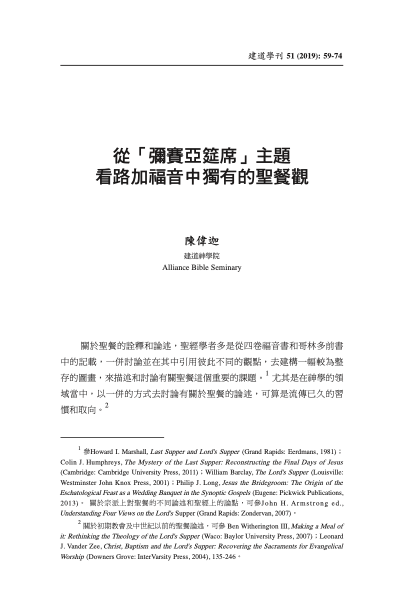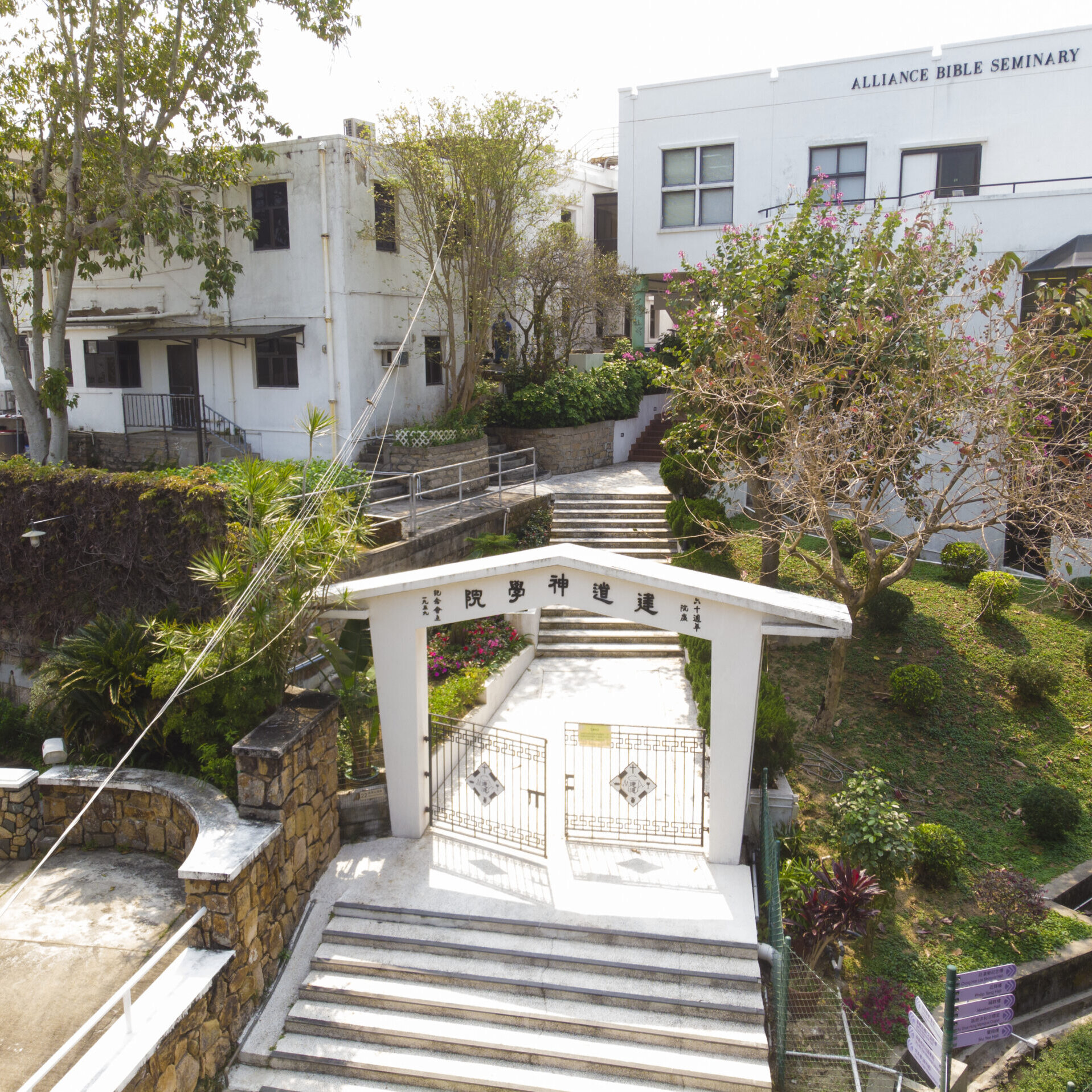從「彌賽亞筵席」主題看路加福音中獨有的聖餐觀/陳偉迦
陳偉迦
撮要
當討論聖經中的聖餐觀時,學者多從四卷福音書與哥林多前書中的聖餐記述一併作出討論,建構一個較為綜合和全面的聖餐觀。近年則有學者嘗試先從每書卷中獨特的主題和神學開始,討論其聖餐的記載是如何與書卷本身的主題和神學作出整合和呼應,再在這基礎上去與其他福音書和保羅書信作出一個較為整合的聖餐觀的討論和研究。彌賽亞的筵席是一個突出並貫穿路加福音的主題,本文集中討論彌賽亞的筵席這一主題是如何的與整本路加福音的主旨互相連貫,並道出最後晚餐的真正意義。可見往後在討論聖經中的聖餐觀時,或需先從個別書卷去討論其聖餐的記載的意義,再與不同書卷的聖餐記述去建構一個更豐富的新約中的聖餐觀,使教會能享受聖經與聖禮的奧妙之處。
ABSTRACT
Studies on Holy Communion often discuss all relevant passages in the Four gospels and in 1 Corinthians so as to set forth a synthesised and comprehensive biblical view of the Eucharist. This article examines specifically how the theme of the Messianic Banquet in the Gospel of Luke contributes to an intriguing understanding of the Lord’s Supper. This article countenances the approach of examining each Holy Communion passage in the New Testament before we set forth an encompassing view on Holy Communion in the New Testament. By exploring individual Holy Communion passage with respect to the unique echoes and theological themes embedded in each New Testament book, the church benefits from the profundity of the sacrament.
原載於《建道學刊》51期(2019年1月),頁 59-74。
最新文章
新手牧者研究計劃(三):新手牧者的身心靈狀態 / 盧慧儀
2025 年 11 月 19 日
【教牧退休】好好理財 退而不憂 / 林本利
2025 年 10 月 1 日
【教牧退休】生前身後的管理:平安三寶 / 陸文慧
2025 年 10 月 1 日
編輯精選
[電子書]困境與抉擇:「建道研究中心30週年誌慶」跨學科研討會論文集/廖炳堂、倪步曉主編
2025 年 1 月 2 日
從梧州到長洲:建道神學院125年的挑戰與恩典 / 陳智衡
2023 年 10 月 1 日
微小教會的見證/高銘謙
2023 年 6 月 1 日







